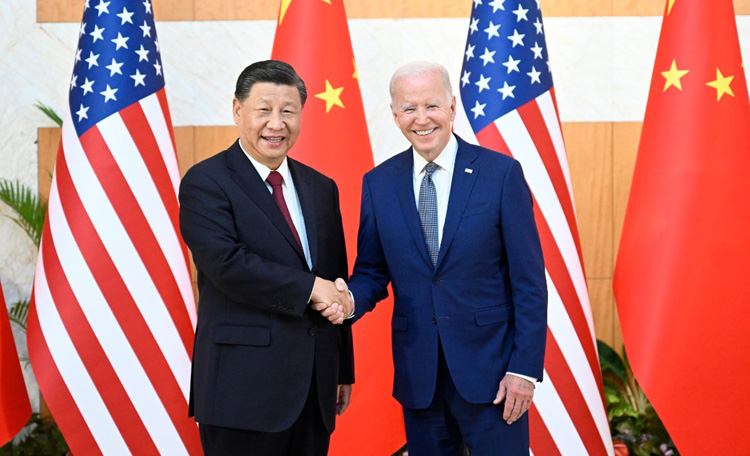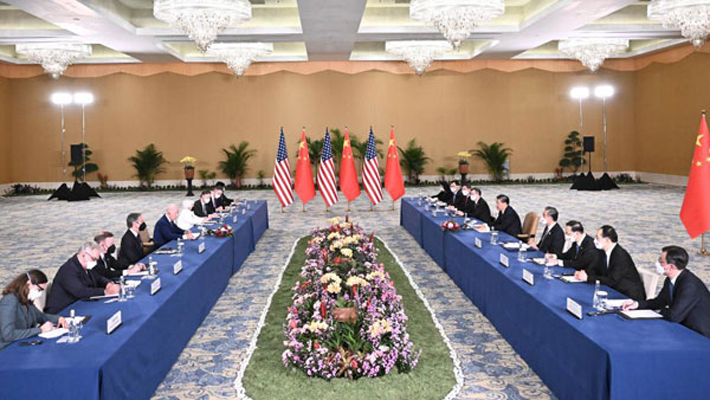INDIAN ARMED FORCES CHIEFS ON OUR RELENTLESS AND FOCUSED PUBLISHING EFFORTS

The insightful articles, inspiring narrations and analytical perspectives presented by the Editorial Team, establish an alluring connect with the reader. My compliments and best wishes to SP Guide Publications.

"Over the past 60 years, the growth of SP Guide Publications has mirrored the rising stature of Indian Navy. Its well-researched and informative magazines on Defence and Aerospace sector have served to shape an educated opinion of our military personnel, policy makers and the public alike. I wish SP's Publication team continued success, fair winds and following seas in all future endeavour!"

Since, its inception in 1964, SP Guide Publications has consistently demonstrated commitment to high-quality journalism in the aerospace and defence sectors, earning a well-deserved reputation as Asia's largest media house in this domain. I wish SP Guide Publications continued success in its pursuit of excellence.
- Operation Sindoor: Resolute yet Restrained
- India’s Operation Sindoor Sends a Clear Message to Terror and the World – ‘ZERO TOLERANCE’
- Japan and India set forth a defence cooperation consultancy framework, talks on tank and jet engines
- Terrorist Attack in Pahalgam in Kashmir: Unfolding a long surgical war against PAK
- Lt General Pratik Sharma takes over Command of Indian Army's Northern Command
No cold war; Tensions may still flare
The meeting between President Biden and Chinese President Xi Jinping on the sidelines of the G20 summit may cool temperatures for now. But while Washington and Beijing can try to put guardrails on their relationship, sensitivities over Taiwan are high and the risk for misunderstanding acute.
 |
The Author is Former Chief of Staff (COS), Central Command, Indian Army. He is an expert on Siachen and Ladakh with experience in counter insurgency operations in J&K and North East and is also an expert on Information Warfare. |

The meeting between President Biden and Chinese President Xi Jinping went largely as expected. On the Indonesian island of Bali, the leaders of the two global powers had their first in-person, face-to-face encounter since Biden took office. The session, on the sidelines of the Group of 20 major economies summit, came amid a deep freeze in relations between the two countries. The modest goal was to stabilise a tense dynamic and lay the kindling for a potential future thaw. After Xi and Biden spoke, officials suggested that some progress had been made.
“I absolutely believe there need not be a new Cold War,” Biden told reporters following the three-hour closed-door meeting. He added that he and Xi “were candid and clear with one another across the board” and pointed to the need for their two countries “to be able to work together” on global challenges like climate change and food insecurity.
Xi responded in somewhat similar fashion. He said “China-U.S. relations currently face a situation that is not in the interests of the two countries” and hoped that he and his American counterpart could “steer the bilateral relationship in the right direction.”
There were glimmers of breakthroughs. It emerged that Secretary of State Antony Blinken will go to Beijing early next year as part of an expanding dialogue between both countries. And it also appeared that a number of intergovernmental joint working groups — including important bilateral discussions on climate change — were set to resume operation after China broke off contacts in the wake of the controversial visit to Taiwan by House Speaker Nancy Pelosi in August this year.
The meeting between President Biden and Chinese President Xi Jinping on the sidelines of the Group of 20 major economies summit, came amid a deep freeze in relations between the two countries
Both Biden and Xi came to the sit-down bolstered by domestic developments. At a major Communist Party congress last month, Xi secured his position as paramount leader of the one-party Chinese state and raised up loyalists to further cement his indefinite grip on power. For outside observers, the long horizon of Xi’s rule has crystallised a view of an increasingly aggressive China on the world stage, bent on subverting the international system in its favor while further constricting the space for civil society and dissent at home.
Xi and Biden’s meeting did not conclude with a joint statement, a diplomatic nicety that usually indicates a level of trust and common cause. That’s clearly not there, with the two countries still at odds on a host of issues, from tech policy to Taiwan. Analysis of the separate readouts of the Biden-Xi meeting put out by the United States and China showed a telling divergence.

The United States touted Xi’s agreement with Biden that Russian President Vladimir Putin should not threaten to use nuclear weapons in his war in Ukraine. That view was not present in China’s summary of proceedings, which relayed that Xi simply said that the crisis in Ukraine had no “simple solution” and that “confrontation between major powers must be avoided.”
The clash over Taiwan is a more urgent issue. Biden, according to the U.S. readout, pressed Xi in private discussions about China’s “increasingly aggressive” actions toward the self-governing island, which is witnessing a spike in Chinese military maneuvers near its coastline and entries into its airspace. Xi retorted, according to the Chinese Foreign Ministry, that Taiwan’s future is at the “very core of China’s core interests” and is a “red line” the United States must not cross.
Xi and Biden’s meeting did not conclude with a joint statement, a diplomatic nicety that usually indicates a level of trust and common cause. That’s clearly not there, with the two countries still at odds on a host of issues, from tech policy to Taiwan.
That’s easier said than done. Bipartisan sympathy has grown in Congress for Taiwan, with some lawmakers now pushing legislation that would authorise the U.S. government to be able to arm and train Taiwan in advance of a Chinese military invasion in the same way it has aided Ukraine after Russian tanks rolled across its borders. U.S. military planners believe that the prospect of China taking military action against Taiwan is high in the coming years.
The discussions between Xi and Biden may cool temperatures for now. But while Washington and Beijing can try to put guardrails on their relationship, sensitivities over Taiwan are high and the risk for misunderstanding acute. That Biden or his successors may not budge on their solidarity for Taiwan could prove a problem for Xi, who has in part staked his legitimacy on the promise of Taiwan’s eventual unification with the mainland.
“The United States thinks that so long as there is no conflict or crisis in relations, then that’s fine. But China wants to see evidence of progress, especially when it comes to Taiwan,” said Wu Xinbo, Dean of International Studies at Fudan University in Shanghai.
Some analysts insist that conflict doesn’t need be on the cards. “A war over Taiwan is no longer unthinkable, but it is by no means inevitable, especially if the United States acts to bolster the credibility of the conditional threats and conditional assurances that have preserved the peace for decades,” wrote Jessica Chen Weiss in Foreign Affairs. “The growing fatalism of some commentators neglects the interest that the United States, China, Taiwan, and the world all share in avoiding a shooting war.”
Was there any serious or consequential discussion on India or Indo Pacific? Not much has come out.
Yet the absence of meaningful diplomacy between the two powers sets the stage for further friction. The meeting seems to have accomplished the minimum: creating the potential for stabilising the relationship. But that requires robust follow-up and a determination on both sides to break with trends in both countries toward vitriolic rhetoric and escalating tension.





